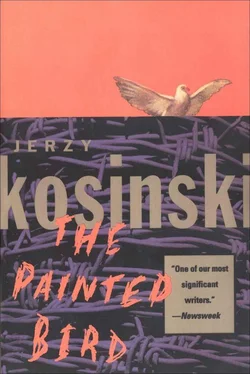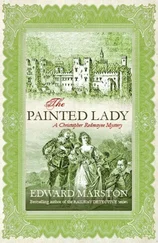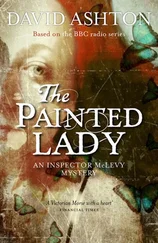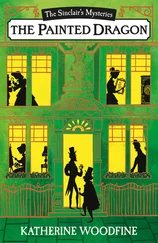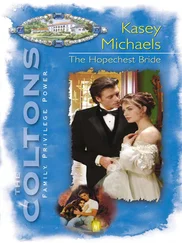Jerzy Kosiński - The Painted Bird
Здесь есть возможность читать онлайн «Jerzy Kosiński - The Painted Bird» весь текст электронной книги совершенно бесплатно (целиком полную версию без сокращений). В некоторых случаях можно слушать аудио, скачать через торрент в формате fb2 и присутствует краткое содержание. Год выпуска: 1965, ISBN: 1965, Жанр: Детская проза, на английском языке. Описание произведения, (предисловие) а так же отзывы посетителей доступны на портале библиотеки ЛибКат.
- Название:The Painted Bird
- Автор:
- Жанр:
- Год:1965
- ISBN:978-0-8021-9575-3
- Рейтинг книги:4 / 5. Голосов: 1
-
Избранное:Добавить в избранное
- Отзывы:
-
Ваша оценка:
- 80
- 1
- 2
- 3
- 4
- 5
The Painted Bird: краткое содержание, описание и аннотация
Предлагаем к чтению аннотацию, описание, краткое содержание или предисловие (зависит от того, что написал сам автор книги «The Painted Bird»). Если вы не нашли необходимую информацию о книге — напишите в комментариях, мы постараемся отыскать её.
The Painted Bird — читать онлайн бесплатно полную книгу (весь текст) целиком
Ниже представлен текст книги, разбитый по страницам. Система сохранения места последней прочитанной страницы, позволяет с удобством читать онлайн бесплатно книгу «The Painted Bird», без необходимости каждый раз заново искать на чём Вы остановились. Поставьте закладку, и сможете в любой момент перейти на страницу, на которой закончили чтение.
Интервал:
Закладка:
The war and the front line were already far away in enemy territory. The radio reported daily new defeats of the German Army and of its exhausted allies. The soldiers listened carefully to the reports, nodded their heads with pride, and went about their training. They wrote lengthy letters to their relatives and friends, doubting that they would have a chance to go into battle before the war ended, for the Germans were being routed by their older brothers.
Life in the regiment was calm and well ordered. Every few days a small biplane landed on the temporary airfield, bringing mail and newspapers. The letters brought news from home, where people were beginning to rebuild the ruins. Pictures in the newspapers showed bombed Soviet and German cities, smashed fortifications, and the bearded faces of German prisoners in endless lines. Rumors of the approaching end of the war circulated more and more frequently among the officers and soldiers.
Two men looked after me most of the time. They were Gavrila, a political officer of the regiment, who was said to have lost his entire family in the first days of the Nazi invasion, and Mitka, known as “Mitka the Cuckoo,” a sharpshooting instructor and a crack sniper.
I also enjoyed the protection of many of their friends. Every day Gavrila used to spend time with me in the field library. He taught me to read. After all, he said, I was already over eleven. Russian boys of my age not only could read and write, but they could even fight the enemy when necessary. I did not want to be taken for a child: I studied industriously, watching the ways of the soldiers and imitating their behavior.
Books impressed me tremendously. From their simple printed pages one could conjure up a world as real as that grasped by the senses. Furthermore, the world of books, like meat in cans, was somehow richer and more flavorful than the everyday variety. In ordinary life, for example, one saw many people without really knowing them, while in books one even knew what people were thinking and planning.
I read my first book with Gavrila’s assistance. It was called Childhood and its hero, a small boy like myself, lost his father on the first page. I read this book several times and it filled me with hope. Its hero did not have an easy life either. After his mother’s death he was left quite alone, and yet despite many difficulties he grew up to be, as Gavrila said, a great man. He was Maxim Gorky, one of the greatest of all Russian writers. His books filled many shelves in the regimental library and were known to people all over the world.
I also liked poetry. It was written in a form resembling prayers, but was more beautiful and more intelligible. On the other hand, the poems did not guarantee days of indulgence. But one did not have to recite poetry as penance for sins; poetry was for pleasure. The smooth, polished words meshed with each other like oiled millstones ground to a fine fit. But reading was not my principal occupation. My lessons with Gavrila were more important.
From him I learned that the order of the world had nothing to do with God, and that God had nothing to do with the world. The reason for this was quite simple. God did not exist. The cunning priests had invented Him so they could trick stupid, superstitious people. There was no God, no Holy Trinity, no devils, ghosts, or ghouls rising from graves; there was no Death flying everywhere in search of new sinners to snare. These were all tales for ignorant people who did not understand the natural order of the world, did not believe in their own powers, and therefore had to take refuge in their belief in some God.
According to Gavrila, people themselves determined the course of their lives and were the only masters of their destinies. That is why every man was important, and why it was crucial that each know what to do and what to aim for. An individual might think his actions were of no importance, but that was an illusion. His actions, like those of innumerable others, formed a great pattern which could only be discerned by those at the summit of society. Thus some apparently random stitches of a woman’s needle contributed to the beautiful floral pattern as it finally appeared on a tablecloth or bedcover.
In accordance with one of the rules of human history, said Gavrila, a man would from time to time spring up from the vast nameless mass of men; a man who wanted the welfare of others, and because of his superior knowledge and wisdom he knew that waiting for divine help would not help matters on earth very much. Such a man became a leader, one of the great men, who guided people in their thoughts and deeds, as a weaver guides his colored threads through the intricacies of the pattern.
Portraits and photographs of such great men were displayed in the regimental library, in the field hospital, in the recreation hall, in the mess tents, and in the soldiers’ quarters. I had often looked at the faces of these wise and great men. Many of them were dead. Some had short, resounding names and long bushy beards. The last one, however, was still living. His portraits were larger, brighter, more handsome than those of the others. It was under his leadership, said Gavrila, that the Red Army was defeating the Germans and bringing to the liberated peoples a new way of life which made all equal. There would be no rich and poor, no exploiters and no exploited, no persecution of the dark by the fair, no people doomed to gas chambers. Gavrila, like all the officers and men in the regiment, owed all he had to this man: education, rank, home. The library owed all its beautifully printed and bound books to him. I owed the care of the army doctors and my recovery to him. Every Soviet citizen was in debt to this man for everything he possessed and for all his good fortune.
This man’s name was Stalin.
In the portraits and photographs he had a kind face and compassionate eyes. He looked like a loving grandfather or uncle, long unseen, wanting to take you into his arms. Gavrila read and told me many stories about Stalin’s life. At my age young Stalin already had fought for the rights of the underprivileged, resisting the centuries-old exploitation of the helpless poor by the pitiless rich.
I looked at the photographs of Stalin in his youth. He had very black, bushy hair, dark eyes, heavy eyebrows, and later even a black mustache. He looked more of a Gypsy than I did, more Jewish than the Jew killed by the German officer in the black uniform, more Jewish than the boy found by the peasants on the railroad tracks. Stalin was lucky not to have lived his youth in the villages where I had stayed. If he had been beaten as a child all the time for his dark features, perhaps he would not have had so much time to help others; he might have been too busy just fending off the village boys and dogs.
But Stalin was a Georgian. Gavrila did not tell me if the Germans had planned to incinerate the Georgians. But as I looked at the people that surrounded Stalin in the pictures I had not the slightest doubt that if the Germans had captured them, they would all have gone to the furnaces. They were all swarthy, black-haired, with dark eyes.
Because Stalin lived there, Moscow was the heart of the whole country and the longed-for city of the working masses of the whole world. Soldiers sang songs about Moscow, writers wrote books about it, poets praised it in verse. Films were made about Moscow and fascinating tales told about it. It seemed that deep under its streets, entombed like gigantic moles, long gleaming trains rushed smoothly along and stopped noiselessly at stations decorated with marble and mosaics finer than those in the most beautiful churches.
Stalin’s home was the Kremlin. Many old palaces and churches stood there in one compound behind a high wall. One could see over it the domes resembling huge radishes with their roots pointing toward the sky. Other pictures showed the Kremlin quarters where Lenin, the late teacher of Stalin, used to live. Some of the soldiers were more impressed by Lenin, others by Stalin, just as some of the peasants spoke more often about God the Father and others about God the Son.
Читать дальшеИнтервал:
Закладка:
Похожие книги на «The Painted Bird»
Представляем Вашему вниманию похожие книги на «The Painted Bird» списком для выбора. Мы отобрали схожую по названию и смыслу литературу в надежде предоставить читателям больше вариантов отыскать новые, интересные, ещё непрочитанные произведения.
Обсуждение, отзывы о книге «The Painted Bird» и просто собственные мнения читателей. Оставьте ваши комментарии, напишите, что Вы думаете о произведении, его смысле или главных героях. Укажите что конкретно понравилось, а что нет, и почему Вы так считаете.
